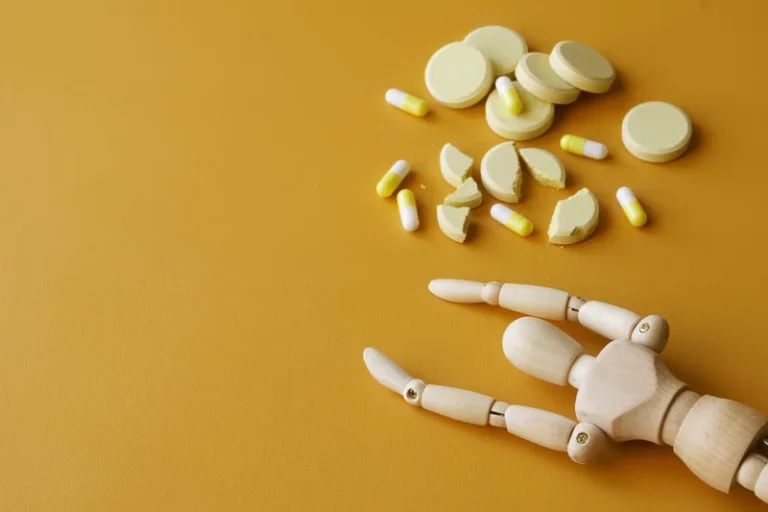
This state of mind is dangerous because it encourages bad health practices that can eventually lead to a full-blown relapse. A study from Marquette University pointed out that stress rendered people in recovery more vulnerable to other relapse triggers. Researchers followed the cocaine use patterns of stressed and unstressed rats and used a low dose of cocaine as a trigger. The stressed rats’ responses to the trigger mirrored those of people during relapse. While holidays are a time of celebration for some, they may be a struggle for people in recovery.
Addiction Resources
- Gatehouse Treatment would like to help you overcome your relapse triggers.
- Having a plan to get through times when your cravings are triggered will be very helpful in avoiding a relapse.
- Some people experience a whirlwind of emotions when seeing old friends and loved ones, which can trigger the desire to have a drink.
- By developing adaptive coping skills and practicing self-care during transitions, you can continue on your path to recovery and avoid setbacks.
- By proactively addressing emotional turmoil, you can maintain your sobriety and continue on your recovery journey.
Stress is a part of daily life for most people, whether it’s being late to work in the morning or tense relations with a loved one. Health problems, increased responsibility and other events can result in stress that triggers drug cravings. Developing healthy coping mechanisms is the key to effectively managing stress and anxiety. Mindfulness, exercise, and talking to a therapist or support group are all great ways to help manage stress in a healthy way. By addressing stress and anxiety head-on, you’ll be better equipped to resist the temptation of drugs or alcohol. Relapse is a common part of the recovery journey, but it Sobriety does not have to be inevitable.
Substance Abuse Treatment Programs
In recovery, people don’t have that option and often struggle to accept and process negative feelings. At Legacy Healing Center, we specialize in providing comprehensive rehab care tailored to each individual’s needs. Our team designs plans that address the physical and emotional aspects of recovery, incorporating methods like rapid resolution therapy (RRT) to build resilience. From mindfulness practices to trauma therapy, we offer a range of services to address the root causes of addiction. Our compassionate professionals are dedicated to supporting you every step of the way and helping you recognize and manage relapse triggers effectively.
Planning a Vacation with a Loved One in Recovery

If you are concerned that you or a loved one is close to relapsing back into their addiction, please do not delay getting the help needed. Our experienced and compassionate team here at Free by the Sea is here to help you. Learning how to cope with your emotions as they surface without having to turn to substances is essential in your recovery. Combining this knowledge with the tools you have been given will help you navigate your sobriety.
Top 7 Relapse Triggers And How To Manage Them

Lastly, effective relapse prevention plans should outline personal high-risk situations you’ve identified, along with strategies for managing them. It’s beneficial to create this plan collaboratively with a therapist or sponsor, ensuring that support systems are in place. Discussing potential triggers in recovery groups can also lead to practical strategies and accountability, enhancing your resilience against relapse. Addiction recovery is a challenging journey, where the risk of relapse is a constant reality.
- Recovery is hard work and drug use feels easy, and this can make people feel like their efforts haven’t been worth it.
- The triggers listed above might not apply to everyone and could vary depending on individual circumstances.
- In either case, understanding your triggers forms a significant part of a successful recovery journey.
- Find someone you trust and respect to kindly, but firmly, persuade you to stop what you’re doing if you do start to relapse.
- Having people to relate to and share your story with can make all the difference.

Talking about past drug use can lead your addictive brain into taking over. For this reason, speak up if you find yourself in a pattern of reminiscing. Surely they can help you to be reminded of why you chose to live a life in recovery. Being new to recovery can bring on a much brighter outlook on life and your future. By the same token, it’s important to remember, becoming overly confident may put you at risk for relapse. While self confidence is necessary, becoming overly confident can bring a state of complacency and sets you up for a relapse risk.
Stress Triggers Relapse For Drug And Alcohol Addicts

Avoid external triggers whenever possible, and get rid of any item that may lead to a trigger. Recognize that these friendships are harmful to you and be sure to cut the friendship off completely; a half-way ending to a bad friendship will be much less likely to succeed. Often a place may trigger a memory of an event, or smelling something, such as a particular cologne, may trigger your memory of a loved relative. The way that the brain links memories is a powerful tool that is used to help you recall important information, but that may also affect your recovery process.
Reinforce Recovery at Gateway

Recovery can feel lonely at times, especially if those around you don’t really understand your experiences with addiction and what it takes to remain sober. This feeling of isolation can lead to relapse, and so ensuring that you have access to a community of https://ecosoberhouse.com/ support is essential. This could mean reaching out to a therapist or joining a support group, or simply meeting up with a friend who is good at listening and understanding.
Common Triggers
- It is important to continue working on one’s recovery and not become complacent.
- Fortunately, doctors have many ways to treat mental illnesses that do not involve the use of addictive medications, and relief from mental illness can help you avoid a potential relapse.
- Building a strong support system is crucial to counteract the impact of social isolation.
Having a substitute behavior like going to a yoga class or taking a long bath also can be helpful when you’re feeling triggered. Reciting positive mantras or doing relaxation exercises may help you resist these urges as well. For additional support, work with your counselor or therapist on how to effectively deal with these reminders. You can learn a lot about yourself by taking an inventory of what you’re feeling and asking yourself why.
- Communicating your commitment to sobriety with friends and family beforehand can garner understanding and support.
- Feelings of loneliness and disconnection can trigger a desire to seek comfort in substances.
- You may think you miss your old life when you see these reminders, but remember the pain and hardship your addiction brought you as well.
- All Addiction Resource content is medically reviewed or fact checked to ensure as much factual accuracy as possible.
- Patients in rehab may consider skipping treatment sessions or support group meetings to spend time with their friends and family.
- By recognizing these triggers, individuals can develop effective coping strategies and relapse prevention plans to navigate through challenging situations.
Naomi Carr is a qualified mental health nurse with several years of experience working with children and adults in the UK. Seeking support from professionals, such relapse triggers list as therapists or support groups, can provide valuable guidance and assistance in navigating through challenging situations. If you are concerned about yourself or a loved one, we urge you to reach out and contact us in confidence. Our private programs are tailormade to suit individual needs and our doctorate level clinical staff have extensive experience in the field of addiction. If you are not currently in Bali but would like to begin a recovery program immediately, we are able to arrange entry visas for Bali on your behalf.
